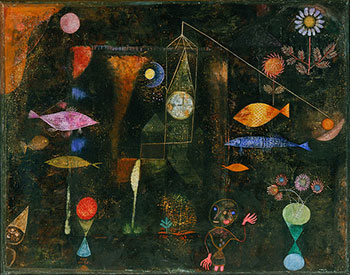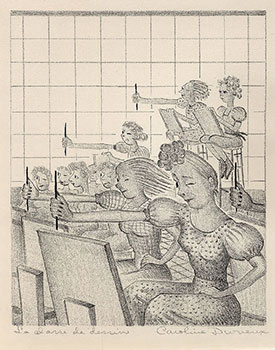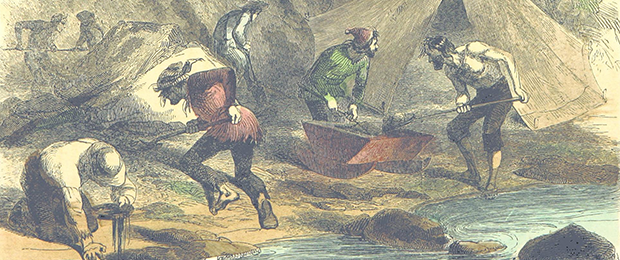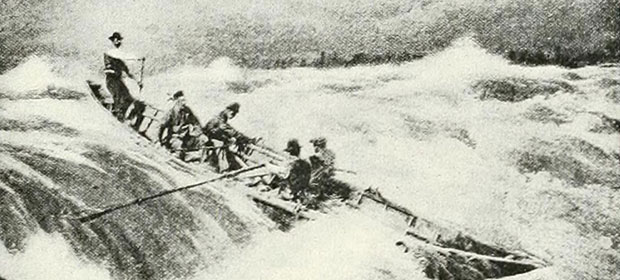"Radar Podcast" entries

A little AI in lots of things: Our most promising future with tech
The O'Reilly Radar Podcast: David Rose on enchanting objects, avoiding cognitive overload, and our future relationship with tech.
Subscribe to the O’Reilly Radar Podcast to track the technologies and people that will shape our world in the years to come.
In this episode of the Radar Podcast, I chat with David Rose, an entrepreneur, MIT Media Lab instructor, and author of Enchanted Objects. We talk about which objects we should enchant, and how to avoid being overwhelmed by object communication and cognitive overload.
Rose also weighs in on the AI debate and outlines the four potential ways he sees the Internet of Things shaking out.
Here are a few snippets from our conversation:
I’ve been a fan of magic and of studying the tropes that magicians have used to control the emotional arc of a trick, for example, and I think enchantment, for me, sort of sets a high bar for designers to consider not just the mechanism of what’s happening, but also consider how people are engaged — and are people delighted? What’s their emotional reaction to whatever the new connectivity or new sensor or new display is that’s in one of these objects?
Those phenomenon of using light and pattern and texture are all pre-attentive — meaning your brain process them in parallel; it’s non-distracting; it happens in less than 250 milliseconds. That’s the design space for the best types of interactions with objects because they don’t tend to overwhelm you, and you don’t perceive them as being a cognitive load because they aren’t a cognitive load.

Bluetooth LE has solved the 50% problem, cracking open the IoT
The O'Reilly Radar Podcast: Alasdair Allan on BLE, data from the Pluto flyby, and the future of "personal space programs."
Subscribe to the O’Reilly Radar Podcast to track the technologies and people that will shape our world in the years to come.
In this week’s O’Reilly Radar Podcast, O’Reilly’s Mac Slocum chats with Alasdair Allan, an astrophysicist and director at Babilim Light Industries. In their wide-ranging conversation, Allan talks about the data coming out of the New Horizons Pluto flyby, the future of “personal space programs,” and why Bluetooth LE (BLE) is cracking open the Internet of Things.
Here are a few highlights from their conversation:
The only thing Bluetooth LE shares with traditional Bluetooth is the name.
Bluetooth LE, now that Google Android also supports it, has solved the 50% problem. … Now that all of the smartphones in the world have Bluetooth LE, or at least the more modern ones, there is a very easy way to produce low-power devices — wearables, embedded sensors, all of that sort of stuff — that anyone can access with a smart phone.
The Internet of Things is neither about the Internet, nor really the things. I much prefer the academic term “ubiquitous computing,” but no one really seems to want to use that, which is somewhat unfortunate.
You don’t have to worry about power, and that can be a real lever to open up the wearables market in the same way the BLE was a lever to open the IoT market.
There are hardly any impact craters on the surface of Pluto, so that means that the surface itself is active. … Also, there’s these huge mountain ranges, three-and-a-half-thousand meters tall — and they’re pointy. There is no way the mountains on Pluto should be pointy.

Avoid design pitfalls in the IoT: Keep the focus on people
The O'Reilly Radar Podcast: Robert Brunner on IoT pitfalls, Ammunition, and the movement toward automation.
Subscribe to the O’Reilly Radar Podcast to track the technologies and people that will shape our world in the years to come.
For this week’s Radar Podcast, I had the opportunity to sit down with Robert Brunner, founder of the Ammunition design studio. Brunner talked about how design can help mitigate IoT pitfalls, what drove him to found Ammunition, and why he’s fascinated with design’s role in the movement toward automation.
Here are a few of the highlights from our chat:
One of the biggest pitfalls I’m seeing in how companies are approaching the Internet of Things, especially in the consumer market, is, literally, not paying attention to people — how people understand products and how they interact with them and what they mean to them.
It was this broader experience and understanding of what [a product] is and what it does in people’s lives, and what it means to them — that’s experienced not just through the thing, but how they learn about it, how they buy it, what happens when they open up the box, what happens when they use the product, what happens when the product breaks; all these things add up to how you feel about it and, ultimately, how you relate to a company. That was the foundation of [Ammunition].
Ultimately, I define design as the purposeful creation of things.

Trillions of things sending billions of messages
The O'Reilly Radar Podcast: Mickey McManus on preparing for an era of unbounded malignant complexity.
Subscribe to the O’Reilly Radar Podcast to track the technologies and people that will shape our world in the years to come.
In this week’s episode of the Radar Podcast, O’Reilly’s Mike Hendrickson talks with Autodesk research fellow Mickey McManus about engaging with extreme users and what’s going to happen when we have trillions of things sending billions of messages. McManus also talked about how we can prepare for the coming era of unbounded malignant complexity.
Unbounded malignant complexity
In talking about Trillions, a book McManus co-authored with Peter Lucas and Joe Ballay, McManus explained what exactly we’re up against in the next five years as our world becomes more and more permeated with computation:
We are probably five years away from trillions of computing devices, and that wouldn’t be bad, but then imagine a world saturated with computers. It’s almost like a super-saturated solution. They’re not all connected, so maybe we could cope with that. But, concurrently, connectivity is joining Moore’s law — people like Intel are working on Moore’s law radio that basically puts all the parts of a radio on silicon. Which means that, suddenly, the cost of connectivity drops to dirt, to nothing, to dust.
We’ll have this super-saturated solution where that seed hits it, and we’re going to turn the sock inside out. We’re going to go from information in computers, like your super computer in your pocket, to us being surrounded by information. … The next information age will be an era of unbounded malignant complexity. Because there’s a lot of stuff. We have to get ready for that.

To create the future we want, we need more moonshots
The O'Reilly Radar Podcast: Tim O'Reilly and Astro Teller talk about technology and society, and the importance of moonshots.
Subscribe to the O’Reilly Radar Podcast to track the technologies and people that will shape our world in the years to come.
In this week’s Radar Podcast episode, Tim O’Reilly sits down with Google X’s Astro Teller. Their wide-ranging conversation covers moonshots, the relationship between technology and society, the learning process for hardware, and more. What follows are some snippets of their conversation to whet your appetite — you can listen to the entire interview in the SoundCloud player below, or download the podcast through Stitcher, TuneIn, or iTunes.
Technology doesn’t create net losses for the economy
Tim O’Reilly: The policy makers, I think, need to stop talking about creating jobs and start talking about the work we need to do in the world, because if you do that work, you do create jobs. I was struck by this when I went to Mount Vernon, George Washington’s home. He was really into scientific agriculture, as was Thomas Jefferson. He had this vision that America could feed the world. There was that economic vision: there is something that needs doing. One of the things I love about Google X is it’s driven by solving problems, and those problems actually often do create new opportunities for work.
Astro Teller: I completely agree with you about the problems. In addition, when you look at the history of technology — its introduction, and what happened in society afterword — technology has functioned in every case in the past as a lever for the human mind or for the human body. Things like the introduction of spreadsheets destroyed the business, the profession of bookkeeping — but because we trained people, we as society trained people, they became accountants, they became analysts. As many jobs as were lost were created, and more work, more productivity was created in the process. The bulldozer took away, in a very analogous way, a lot of jobs from people who were digging with shovels, but because we trained them to do things like build the bulldozers, drive the bulldozers, maintain the bulldozers, it wasn’t a net loss for the economy.
I believe that the failure mode we are currently in, to the extent that there’s a failure mode, is not the introduction of new technologies but the failure of our society to train the young people of the world so that they will be prepared to use these more and more sophisticated levers.

The future of data at scale
The O'Reilly Radar Podcast: Turing Award winner Michael Stonebraker on the future of data science.
Subscribe to the O’Reilly Radar Podcast to track the technologies and people that will shape our world in the years to come.
In March 2015, database pioneer Michael Stonebraker was awarded the 2014 ACM Turing Award “for fundamental contributions to the concepts and practices underlying modern database systems.” In this week’s Radar Podcast, O’Reilly’s Mike Hendrickson sits down with Stonebraker to talk about winning the award, the future of data science, and the importance — and difficulty — of data curation.
One size does not fit all
Stonebraker notes that since about 2000, everyone has realized they need a database system, across markets and across industries. “Now, it’s everybody who’s got a big data problem,” he says. “The business data processing solution simply doesn’t fit all of these other marketplaces.” Stonebraker talks about the future of data science — and data scientists — and the tools and skill sets that are going to be required:
It’s all going to move to data science as soon as enough data scientists get trained by our universities to do this stuff. It’s fairly clear to me that you’re probably not going to retread a business analyst to be a data scientist because you’ve got to know statistics, you’ve got to know machine learning. You’ve got to know what regression means, what Naïve Bayes means, what k-Nearest Neighbors means. It’s all statistics.
All of that stuff turns out to be defined on arrays. It’s not defined on tables. The tools of future data scientists are going to be array-based tools. Those may live on top of relational database systems. They may live on top of an array database system, or perhaps something else. It’s completely open.

Guidance for startup CEOs in the hot seat
The O'Reilly Radar Podcast: Dan Shapiro on his new book Hot Seat, startup co-founders, and imposter syndrome.
Subscribe to the O’Reilly Radar Podcast to track the technologies and people that will shape our world in the years to come.
In this episode of the O’Reilly Radar Podcast, I chat with Dan Shapiro, author and CEO of Glowforge, about his new book Hot Seat: The Startup CEO Guidebook, why startups need co-founders, and why startups are hotbeds for imposter syndrome (and why that’s OK). He also talks a bit about his new endeavor, Glowforge, and how it’s different from other startups he’s launched.
Shapiro explained that the target audience for the book isn’t limited to startup CEOs — in fact, he noted, it’s quite the opposite. “The audience that I’m really excited about getting to see this is everybody who’s not the startup CEO,” he told me. This would include everyone else in the startup ecosystem: co-founders, employees working at a startup, and people employed at big companies who are thinking about taking the leap to found their own startups. He said he wrote this book for “people who are on the cusp or who are touching or who are thinking about that role, either directly or indirectly” — he wrote the book he’d wished he’d had when he started out:
The thing that I wished I’d had in my startup experience — and was always missing — was the honest and unfiltered look at the earliest days of a startup. That was not just, ‘here’s some advice,’ because advice is plentiful and mostly wrong, but real experiences of the stuff that happens. My personal experience, I’m on my fourth or fifth company now, depending on how you count, was that, especially in my first and second companies, I was going through misery and suffering and had these terrible problems. I thought I was the only one who did. I was ashamed to talk about them because everybody else seemed like everything was great and sunny, and I was like, ‘Wow, if my co-founders and I can’t get along, how am I even fit to think about running a company, or shouldn’t we just give up now.’
It was only years later that I realized that almost every set of co-founders has problems and has trouble getting along and runs into issues, and that’s okay. That there are techniques for dealing with that and this is actually really common; it’s just that people are ashamed to talk about it. I wanted to write the book that took lots of peoples’ stories and put them together in the context of, ‘look, startups involve a lot of highs, which there is no shortage of to read about in the press, but a lot of lows as well’ and those are not as often talked about; to talk about some of the experiences of those lows, and strategies for dealing with them.

The new fintech: mobile, decentralized, and friction-free
The O'Reilly Radar Podcast: Dele Atanda and Mutaz Qubbaj talk about their startup platforms and the disruption in fintech.
Learn more about Next:Money, O’Reilly’s conference focused on the fundamental transformation taking place in the finance industry.
In this Radar Podcast episode, I chat with Dele Atanda, founder and CEO of Digitteria, about the disruptive state of the financial tech industry, what he thinks is driving that disruption, and why smart data (as opposed to big data) is going to revolutionize finance. I also talk with Mutaz Qubbaj, CEO and co-founder of Squirrel, about about the Squirrel platform, accelerator programs, and how he views the big disruptors in fintech landscape.
We’ve started an investigation — and launched a new summit, Next:Money — here at O’Reilly to look into the disruption happening in the fintech industry, as burgeoning startups create services and products that threaten to disaggregate traditional finance incumbents. I recently had the opportunity to sit down with a number of fintech startup founders and will be featuring several of those conversations in upcoming Radar Podcasts.
Dele Atanda founded Digitteria, a startup developing sustainable identity and personal data management solutions for both consumers and enterprise. I asked him why the time is ripe for disruption — he pointed to the growing complexity of the landscape and compared the current state of the finance industry to the early stages of the Web:
There’s a significant increase in complexity, and in that complexity there’s a much more detailed and rich ecosystem. Banks, it’s difficult for them to be able to tackle all the ends and elements efficiently, so it’s interesting because it’s almost representative of, it’s lacking the evolution of the Web, but it mirrors it in very many ways. Initially, you had these monolithic sort of applications, or browsers, or services that tried to do lots of things, and then we moved into the mobile era where things became much more siloed and application centric, where you did one thing particularly well. That’s inevitably going to happen in the fintech space. They say that the currency of the industrial era was paper, and the currency of the knowledge era is the electron.
Money is primarily electronic now, so it’s inevitable that there’s going to become this confluence between the Web and finance in that regard. I think, of course, because of security, regulatory issues, and the cultural dimension of money, there’s been a lag and resistance. Now that the Web has reached a level of maturity that it can address those issues, I think that’s inevitable.

Real-world interfaces are in an awkward and playful stage
The O'Reilly Radar Podcast: Josh Clark on the world as an interface, avoiding data rash, and the importance of play.
Subscribe to the O’Reilly Radar Podcast to track the technologies and people that will shape our world in the years to come.
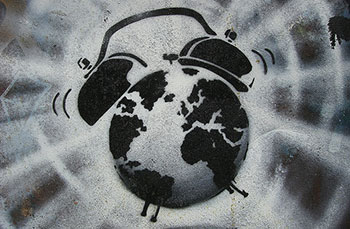 In this week’s episode of the Radar Podcast, O’Reilly’s Mary Treseler chats with Josh Clark, founder of design agency Big Medium (formerly known as Global Moxie). Clark talks about the changing nature of his work as the world itself becomes more of an interface, how to avoid “data rash,” and why in this time of rapid technology growth it’s essential for designers to splash in the puddles.
In this week’s episode of the Radar Podcast, O’Reilly’s Mary Treseler chats with Josh Clark, founder of design agency Big Medium (formerly known as Global Moxie). Clark talks about the changing nature of his work as the world itself becomes more of an interface, how to avoid “data rash,” and why in this time of rapid technology growth it’s essential for designers to splash in the puddles.
The world is the medium
The influence of the Internet of Things is beginning to touch every aspect of our lives, from how we communicate to how we work to how we play. This fundamental shift away from screens to the real-world around us not only is influencing how designers approach their craft, but is changing the medium itself in which designers work. Clark talked about this shift and how it’s affecting his own work:
Over the last couple of years, I’ve found the nature of my work has been changing as well as my interests. I think the culture of digital design is changing, too, as we start moving off of screens. It felt like an opportunity to redefine my own work, so I also did that with my agency and changed its name to Big Medium. The idea of that being that the Internet itself is a pretty big medium, and in fact starting to expand beyond the bounds that we’ve traditionally associated it with, which is the screen. Increasingly, as we’re seeing connected devices — the smart phones were kind of the leading edge of this, but now we’re starting to see wearables and the Internet of Things — this idea that the Internet is becoming embedded in our environment and in everyday objects means that anything can be an interface.
My work is starting to engage more and more with that truly big medium, which is the world itself. Finally, the world is the interface, which of course it always has been, but now we’re able to create digital experiences that belong to the world that we actually move in instead of us having to dive into the screens.
